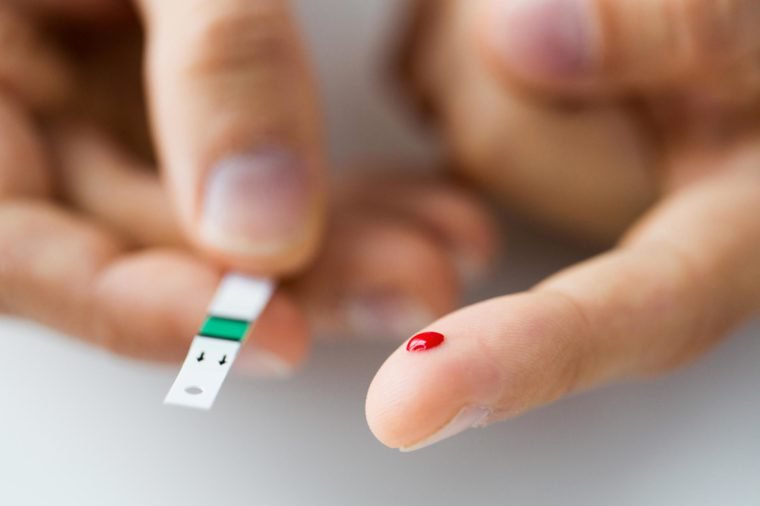
We could all use a little help coming to terms with our stress and figuring out how to handle it. It’s time to talk about the lesser understood ways that stress shows up in the body.
You can’t keep your eyes open
Have you ever been so overwhelmed that you find yourself taking a nap? It’s possible you’re simply exhausted, but it’s also possible that you’re experiencing stress-based fatigue, the body’s urge to try to shut down stress through rest.
According to The American Psychological Association, 50 percent of people experiencing stress reported fatigue as a symptom, ranking higher than changes in appetite, muscle tension, and headaches.
Extreme tiredness can manifest through three essential forms: Stress-based fatigue can feel emotional, similar to how you are spent after an intense argument with a friend; it can be physical, like how worn out your body feels after a long run; and it can be cognitive, similar to how your energy fades after a marathon meeting at work.
Napping can be healthy in many cases, but if you find yourself snoozing every time you feel stressed, it’s important to see the difference between a rejuvenating cat nap and using sleep as a psychologically unproductive crutch.
One symptom of depression is oversleeping, so if your fatigue feels like more of an ongoing form of mental distress than seeking therapy might help. Otherwise, enjoy the benefits of rest every once in a while.
You’re a ball of emotions
When you’re experiencing many emotions at once—rage, frustration, loneliness, fear—this can feel like an onslaught to your system. Perhaps your chest feels heavy, your thoughts are racing, and you can’t focus on the moment.
You might be riddled with worry about the future or stuck on pain from the past. This is referred to as flooding. Everyday life is full of emotional experiences, but emotions that feel impossible to manage, such as frustration that arises in a heated, unprecedented argument with a spouse, falls into the flooded category.
Arielle Schwartz, PhD, a licensed clinical psychologist, explains, “Flooding is the amount of emotional reactivity someone is experiencing in any given moment that feels beyond what they have the capacity to respond to effectively.” The antidote is to focus on the here and now.
You’re frozen
In some stressful situations, fear can immobilize us, in what is known as a freeze response. This manifests as a sense of stiffness, restricted breathing, and feeling stuck in some part of the body. In the case of serious threats such as physical attack or during a natural disaster, our body might go into dissociation mode, an attempt to block out the reality of life-threatening risks.
The freeze response doesn’t just show up in extreme circumstances but also in cases where we perceive a sense of helplessness either due to our age (think of a child who is still learning how to cope with the world) or our state of mind (perhaps we are in recovery from trauma or have undeveloped emotional resources).
For Psychology Today, Leon F. Seltzer, PhD, wrote, “You’re stymied by inappropriate, exaggerated fear, you’re in no position to act sensibly to whatever might be menacing you.” He goes on to say, “Ironically, this self-paralyzing response can in the moment be just as adaptive as either valiantly fighting the enemy or, more cautiously, fleeing from it.”
You go with the flow
According to Curtis Reisinger, PhD, a clinical psychologist at Zucker Hillside Hospital, another less-recognized stress response is fawning, a desire to cooperate or submit oneself to one’s threat or captor. This variation of appeasement is rooted in an evolutionary response.
Think about a robbery: we may react by compiling with the requests of the person who can do us harm. In an emotionally fraught sense, fawning is similar, although the threat may be lower. Traditionally, the word fawn means to show affection or attempt to gain favor in a situation through exaggerated flattery.
If you get into an argument with a loved one, you might withhold your true emotions to avoid conflict. This could be an example of responding to stress through fawning. In a watered down sense, fawning can be likened to people pleasing, a behavior some of us are all too familiar with.
You feel like you might faint
If an episode of stress is accompanied by a dizzy fog that blurs vision or induces nausea, there’s a good chance that the faint response is taking place.
Dr. Schwartz says that in cases of complex post-traumatic stress, the result of long-lasting stressors that are particularly intense, many clients experiencing faint-like symptoms report experiences that left them in a state of needing to shut down in order to survive.
She says, “Many learn to disconnect from emotions and needs.” She attributes a sense of learned helplessness to this stress response that can remain even after the circumstances of the intense stressors have passed. For this, she recommends a somatic therapy approach such as EMDR, which is also a treatment for PTSD.

























